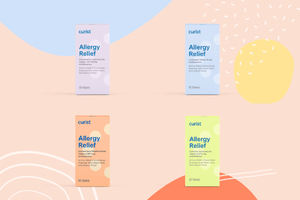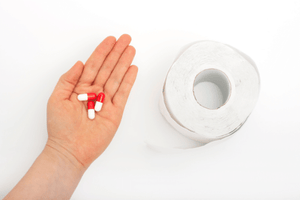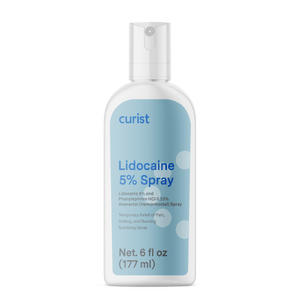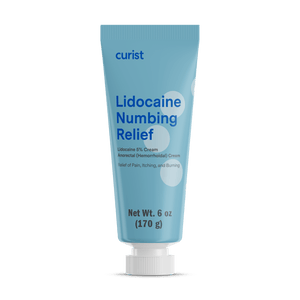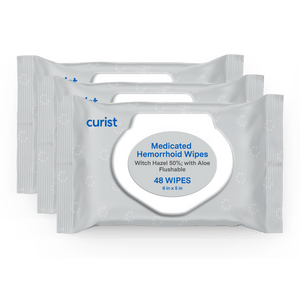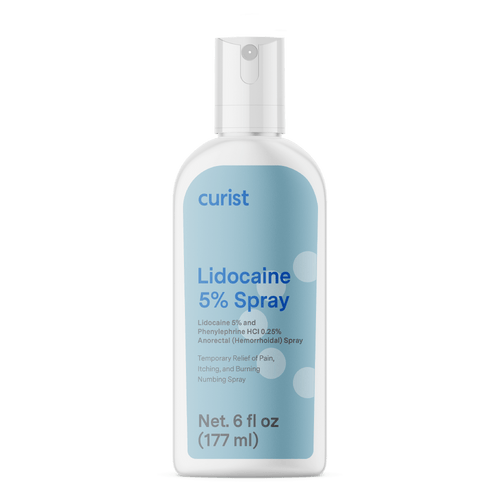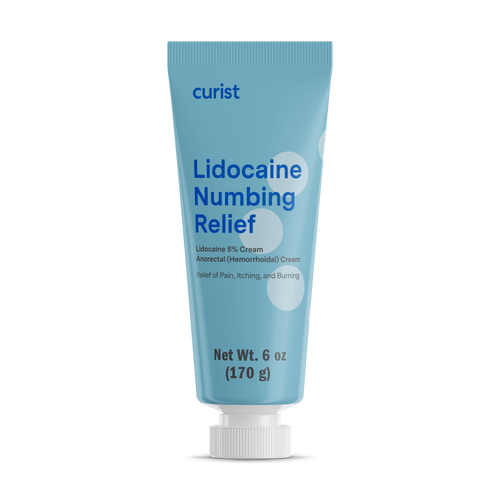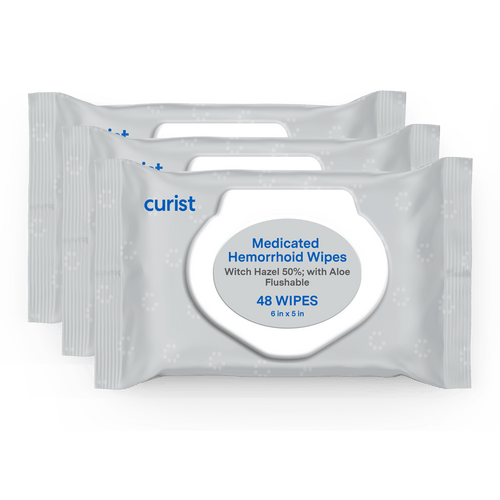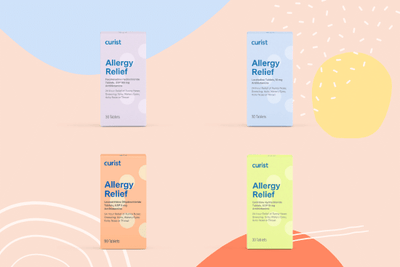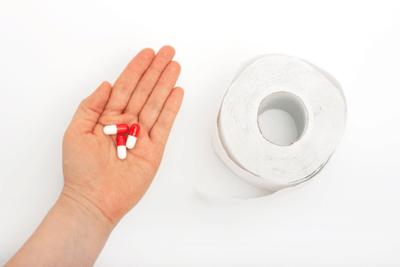Curist delivers over-the-counter medicines to your door at a fraction of the price of traditional brands. We hope everyone stays safe and healthy during this time.
Hemorrhoids, also called piles, are very common in both men and women, so know that you are not alone!Hemorrhoids are typically associated with chronic constipation and can be extremely painful and uncomfortable during occasional flare-ups. However, do not worry! These symptoms can be easily managed with lifestyle changes and over-the-counter (OTC) products. Continue reading to learn more about the different available options and tips to relieve discomfort of hemorrhoids!
What are Hemorrhoids?
Hemorrhoids are swollen, inflamed veins in your lower rectum and anus areas. There are three types of hemorrhoids: internal, external, and prolapsed. Internal hemorrhoids occur inside the rectum and cardinal symptoms are painless bleeding with bowel movements and intermittent protrusion. External hemorrhoids are often a visible lump that develops around the anus and are uncomfortable and may feel itchy. Both types can become prolapsed where the hemorrhoid bulges outward from the anus. Prolapsed hemorrhoids tend to be very painful when you sit down. If you experience pain, itching, irritation, burning and sometimes bleeding from hemorrhoids, these symptoms may indicate a flare-up.
What are the First Signs of Hemorrhoids?
The first signs of hemorrhoids differ depending on the type of hemorrhoids you have .For example, the initial symptom of internal hemorrhoids can be painless bleeding during bowel movements while symptoms of external hemorrhoids can include pain, discomfort, itching or irritation, and bleeding. Prolapsed hemorrhoids are usually the most severe and painful form of both internal and external hemorrhoids.
What are the Symptoms of Hemorrhoids?
Symptoms of hemorrhoids can include:
- Itching around rectal and anal area
- Bleeding during bowel movements
- Pain and irritation around your anus
- Swelling or a hard lump around your anus
Constipation is not a symptom of hemorrhoids, but it can worsen hemorrhoid symptoms by causing increased straining or pressure in the rectum area.
Where is Hemorrhoid Pain Felt? Where Does the Pain Come From?
Hemorrhoid pain is often felt in the rectal and anal area. You may feel pressure, discomfort, or a sharp pain when you sit down, during bowel movements, or when wiping the area. External hemorrhoids are often associated with pain more than internal hemorrhoids. However, if internal hemorrhoids are pushed out during passing stool, this can cause pain and discomfort. Prolapsed hemorrhoids are often the most severe and painful.
What Can Cause Hemorrhoids?
Hemorrhoids can be caused by various factors. The primary cause of hemorrhoids are conditions that cause increased pressure on the veins in the pelvis and rectal area, such as pregnancy, being overweight, or straining during bowel movements. Low-fiber, high-fat Western diet is also associated with constipation and straining which may also exacerbate hemorrhoid flare-ups. Other causes of hemorrhage include:
- Sitting or standing for long periods of time
- Physical overexertion (e.g heavy lifting)
- Family history
- Older age
How Do I Prevent Hemorrhoids?
Hemorrhoids are often associated with chronic constipation, straining during bowel movements, and extended periods of time sitting on the toilet. To help prevent hemorrhoids, prevent constipation, which involves the three “F’s”: increasing intake of high-fiber foods, increasing fluid intake, and initiating more fitness. Another method to prevent hemorrhoids is having healthy bowel habits, such as not straining or using excess force and going as soon as you feel the urge. Straining leads to excess pressure in rectal or anal area. Holding bowel movements may make stool harder to pass and cause straining during bowel movements.
What are the Best Over-the-Counter Medications to Treat Hemorrhoids?
There are a plethora of over-the-counter products you can choose to relieve hemorrhoids.
However, you should use any one of the hemorrhoids treatments for short term treatment of 7 days or less.
- Lidocaine (brands Curist, RectiCare® Anorectal Cream) is often recommended by colon and rectal surgeons to provide rapid relief from pain, itching and burning caused by hemorrhoids
- Phenylephrine (brands Preparation H, Rectacaine) shrinks swollen hemorrhoids, and relieves itching and discomfort for a few hours. Before applying ointment or suppository, the area must be gently cleaned and allowed to dry before applying
- Hydrocortisone (brands Preparation H® hydrocortisone) is a steroid cream recommended to reduce swelling, and pain caused by hemorrhoids
- Witch Hazel (brands Tucks®, Preparation H® pads, Preparation H® wipes, Curist Medicated Wipes) provides relief from local itching and discomfort associated with hemorrhoids and is used to dry or protect the skin around the anus. Curist Medicated Wipes are aloe-infused and are flushable for convenience.
When Should I Seek Help for My Hemorrhoids?
Contact your health care provider after one week of using over-the-counter treatments and see no improvement in your hemorrhoids. Consider reaching out to your provider if you experience:
- Constant and severe rectal or anal pain
- Maroon or dark tar-like blood in your stool
- Feeling dizzy or faint from excess bleeding
Other serious diseases or disorders may have similar symptoms to hemorrhoids, like colon cancer, Crohn’s disease, or ulcerative colitis. Speak with your health care provider to rule out these more serious and potentially life-threatening conditions.

